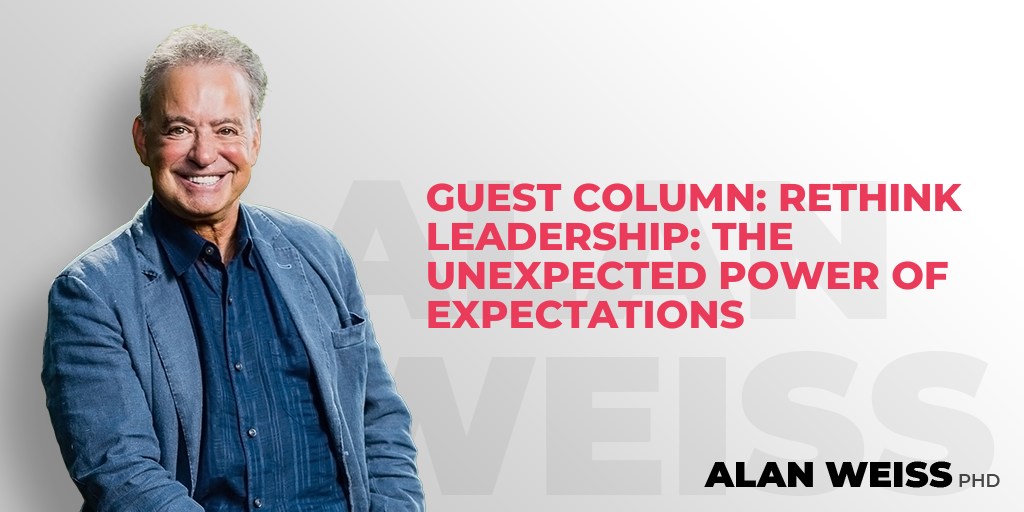Guest Column: Confidence and Dealing with Risk
WorkplaceRx: The Question Mark of Confidence in Dealing with Risk
by Michelle Kerrigan
(Michelle is a member of Alan's SuperCoaching Program.)
Risk is made up of probability and seriousness, minus preventive actions and contingency factors—Alan Weiss
The lower the confidence in asking or answering questions, the higher the probability and seriousness of risk.—Michelle Kerrigan
Operations of the day-to-day workplace comprise roughly 80% of most organizations, making them one of a company’s largest investments and indispensable to business results. Because of their size and varying stages, they are complex systems with a lot of moving parts that can go awry, and often do.
This is a prime target for probable and serious risk.
And, yet, it is often overlooked. Actually, “avoided” is a better word. I know, because it’s the space I’ve worked in for over 25 years. By the time senior management calls me in to do repair work, the damage has already been done. Time, money and momentum have been lost, causing delays, dissatisfaction, and overall frustration.
Now—here’s what I find interesting: Once I begin to ask executives questions, the response is invariably the same: their eyes glaze over and they begin to shut down.
I’ve realized that most of the executives I’ve encountered don’t have the confidence to ask questions. Often, this crisis of confidence is passed down to the team, eventually resulting in serious repercussions. They ignore, avoid, evade, and sidestep until all hell breaks loose.
Most of my success has come from asking the questions nobody likes to ask. It has always been my way to diagnose and fix problems. Asking questions minimizes the probability of risk as well as the seriousness.
Whenever I assess a new operation, I closely observe the day-to-day, and sit side-by-side to interview members of the team. I find out what they do and how they do it, and am very curious about the why and when as well.
Here are some of the questions I ask:
- Do you have a to-do list? What processes do you use?
- What’s your responsibility in the process? What comes before you and where does it go from here?
- What are your most important job functions?
- How do you prioritize?
- How do you follow up and monitor progress?
- Who are you accountable to?
- If you don’t know the answer to something, do you ask?
- What happens when you ask questions?
Responses to these questions tell me a lot—especially the last two. When employees, line managers and leaders hedge, hesitate or can’t answer simple questions, I know something is wrong.
I’ve found that the lower the confidence in asking or answering questions, the higher the probability and seriousness of risk.
Here are a few examples of the problems which can develop:
- Sales are lost because people and process fail to deliver.
- Delays are caused by ignored or missed deadlines.
- Projects frequently lose direction.
- Customers and clients complain more frequently (and loudly).
- The number of costly errors increases.
- Revenue decreases.
People who fear asking questions avoid realistic issues that could impact their organization. The only probability they try to prevent is being judged negatively. That’s the risk they’re focused on.
Lacking the confidence to ask impacts not only preventative measures, but contingency plans too. They both have to do with a proper assessment and appropriate use of questions.
And here’s the amazing thing: when all hell does break loose, corporate contingencies are invariably inappropriate: firings and exhaustive autopsies begin. It is then that executives decide to ask questions!
But the damage is already done.
So—get confident with asking. It forces you to acknowledge that you don’t have the answers, and that’s the beginning of solutions.
The greater risk is taking no risk at all.
Copyright 2013 Michelle Kerrigan.
More about Michelle at: http://www.michellekerriganinc.com






Praveen Puri
Alan,
The link to Michelle’s site needs to be changed to http://www.michellekerriganinc.com/
Alan Weiss
Thank you, it came from her, not from me!
michelle kerrigan
Thank you, Praveen. And thank you, Alan, for sharing.